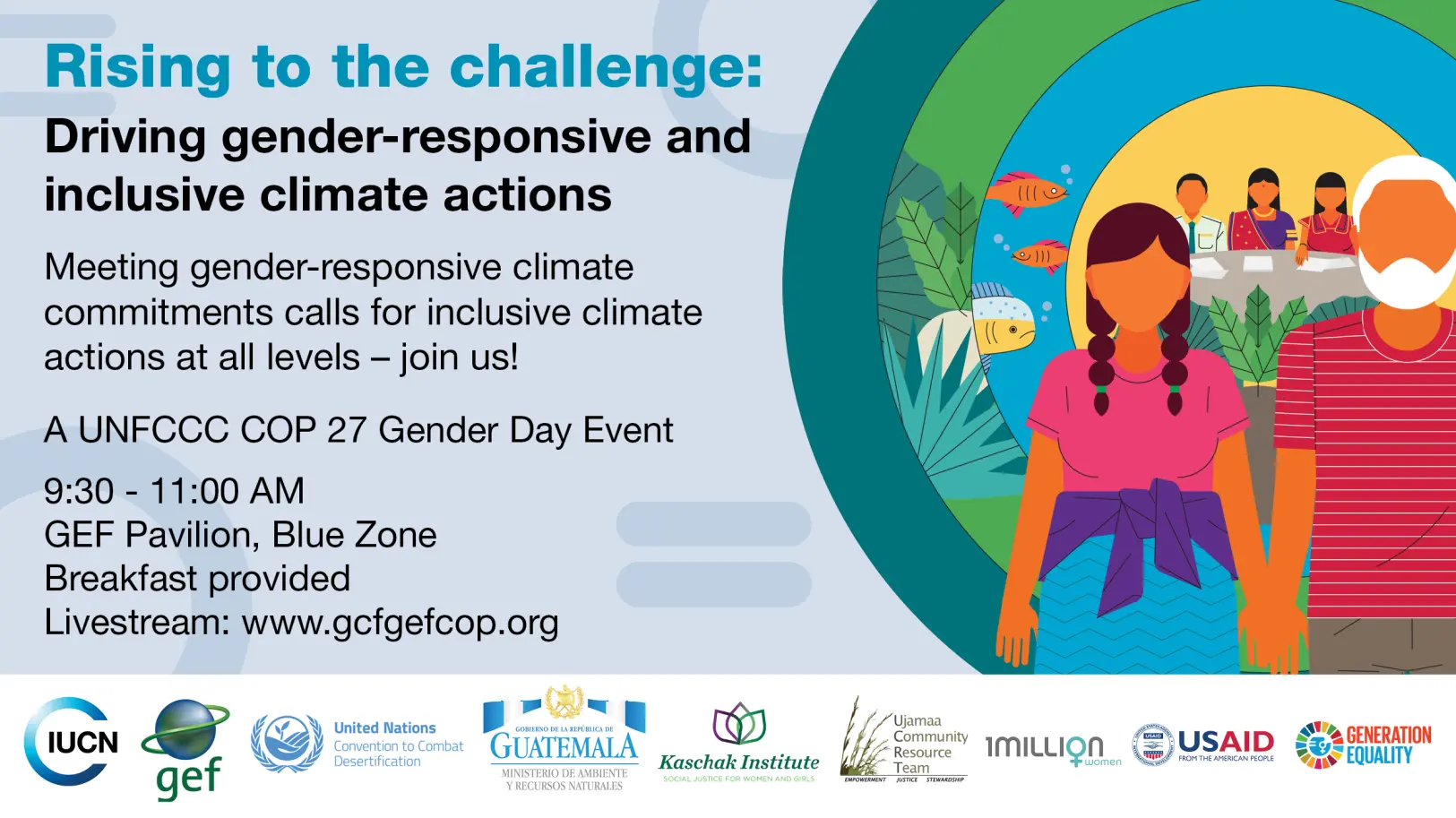Rising to the challenge: Driving gender-responsive and inclusive climate actions
With 100+ decisions under the auspices of UNFCCC that include gender mandates, the Parties to UNFCCC have agreed that gender equality considerations and women’s participation are essential to climate solutions. Despite this international framework, there is still a long way to go to ensure that gender equality considerations are mainstreamed in public policy instruments and programmes to implement effective climate change response that harnesses the contributions of women and girls.

Across these global instruments and agreements, implementing these commitments is now crucial. Discussions on climate change have too often focused on economic and environmental aspects without necessarily considering human rights, the situation of women and girls, nor gender inequalities.
Additionally, many attempts to incorporate gender equality in climate change responses have been confined to simplistic, specific and short-term interventions. When these have been applied, they have failed to dismantle unequal power structures or to exert a structural impact on closing gender gaps. As a result, gender inequalities hinder sustainable development and climate outcomes.
COP 27 is taking place in a context of growing urgency and demands at the global level to face the climate crisis and the loss of biodiversity and environmental degradation. It also takes place during a time where rollbacks in gender equality driven by the COVID-19 pandemic have worsened the position of women and girls in all spheres of life. These calls to action are being raised in a context of profound inequalities, where persistent gender inequality has long been a structural hallmark worldwide.
In addition, last year, as the globe met to reflect on the Beijing Platform for Action through the Generation Equality Forum, a Feminist Action for Climate Justice action coalition was formed. This event also features FACJ commitment makers and leaders to help inform and promote inclusive and participatory approaches to climate action.
Within this context, this side event will spotlight progress, including IUCN’s uniquely positioned membership organization as a catalyst of action, and global partners across conventions, civil society, and Indigenous women towards reducing the structural nodes of gender inequality: socioeconomic inequality and poverty in the context of exclusionary growth; patriarchal, discriminatory, and violent cultural patterns; the sexual division of labor and the unfair social organization of care; and the concentration of power and hierarchical relations in the public sphere. It will likewise look at the leadership of financial mechanisms including the Global Environment Facility in driving gender-responsive programming in making a difference in women’s and girls’ lives on the ground.
Speakers will include:
- Lorena Aguilar, Executive Director, Kaschak Institute for Social Justice for Women and Girls, Binghamton University
- Ibrahim Thiaw, Executive Secretary, United Nations Convention to Combat Desertification
- H.E. Gerson Barrios Garrido, Minister, Ministry of Environment and Natural Resources, Government of Guatemala
- Lucy Mulenkei, Executive Director, IIN, GEF IPAG (TBC)
- Maria Elena Herrera, Director of Forestry development at the National Forestry Financing Fund (FONAFIFO)
- Jamie Wen-Besson, Senior Gender Programme Manager, International Union for Conservation of Nature
- Mana Omar, Founder of Sasal and Youth leader, Feminist Action for Climate Justice action coalition, Generation Equality Forum
- Natalie Isaacs, Executive Director, 1 Million Women
